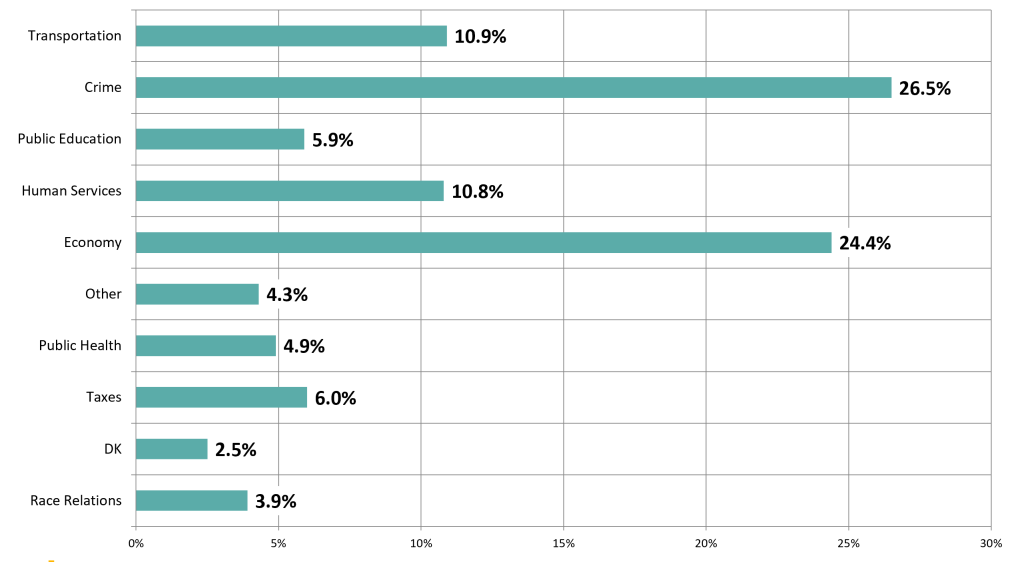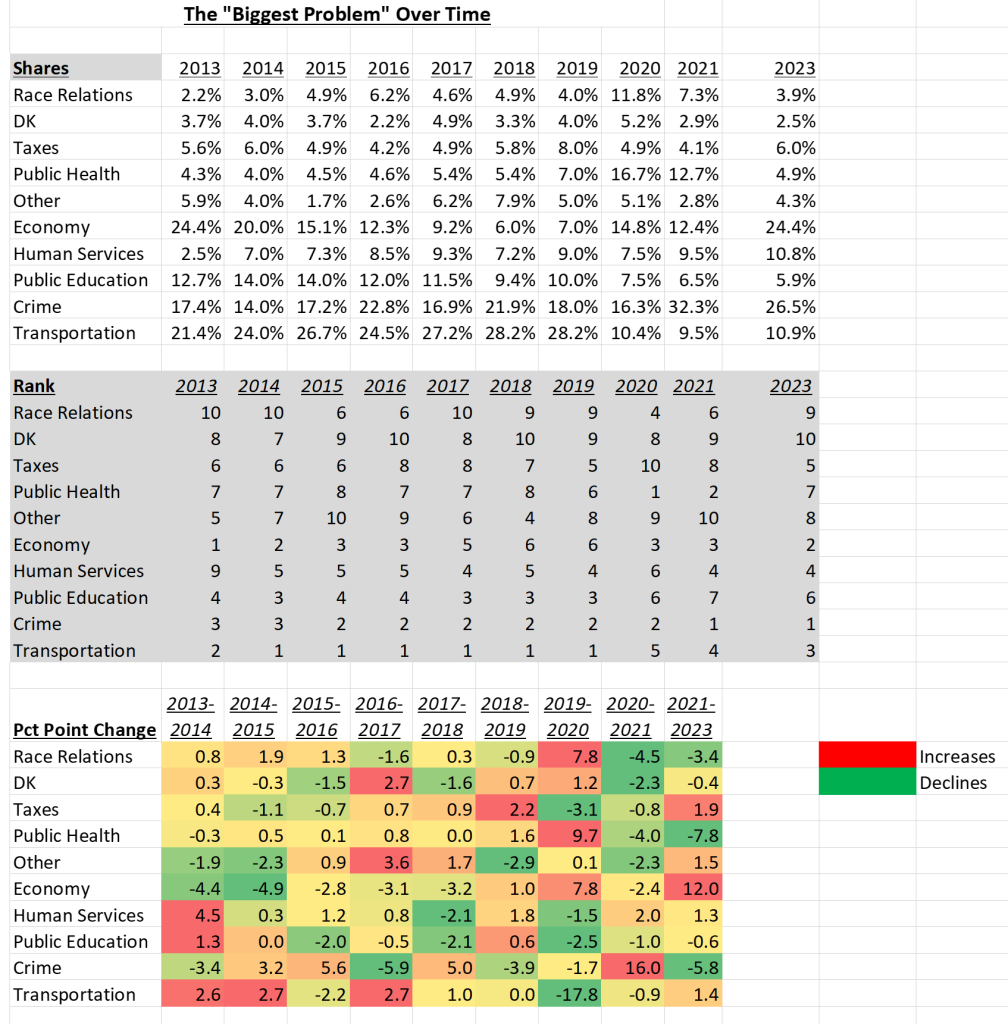The results of the tenth Metro Atlanta Speaks (MAS) survey were released today at ARC’s annual State of the Region Breakfast. The hybrid phone and online survey, done by Kennesaw State’s A.L. Burruss Institute of Public Service and Research, asked 21 questions of 4,850 residents of the 11 counties in ARC. MAS provides valuable and statistically significant resident perception and attitude data down to the county level.
Pretty much all you’d need to know to get a great grounding in the results of this survey are on the Metro Atlanta Speaks webpage, But we’d like to post highlights below!
- This year, respondents rated “Crime” as the biggest issue facing the region, as in 2021…but at the county level, “Crime” rates #1 in only Atlanta, DeKalb, Fulton and Gwinnett. In all other jurisdictions, Economy is #1.
- Only 46 percent of respondents support (either agree or strongly agree) “pay{ing} more in taxes to fund expanded regional public transit that includes buses and rail”.
- More than 63 percent of respondents either agreed or strongly agreed that they COULD NOT afford to move to another housing unit in the neighborhood where they currently live. It’s not much better at all in terms of (affordability of) moving anywhere else within the MSA.
- Around 28 percent of respondents would not be able to pay for a $400 emergency without borrowing money, selling something or simply not paying at all. An additional 23 percent would pay for this emergency with a credit card. This is consistent overall with previous years, but those counties with relatively lower ability to pay are struggling more in 2023 than in 2021.
- Just over nine percent of respondents indicated that they currently own an electric vehicle (slightly higher than national averages), with younger cohorts considerably more likely to own an EV (16.8%). However, nearly a third of respondents said they plan to buy an EV in the next five years. Top reasons for having or a desire to buy in the future include better for the environment and cheaper to operate. Top reasons for not (yet) having or having no desire to buy include being too expensive and inconvenience of charging.
- In terms of climate change over the next 10 years, majorities see major impacts globally and regionally…with the shares larger in every jurisdiction and group for global compared to regional, and higher in more urban counties.
- Those saying that living conditions in the region will be better in the next 3-4 years has declined in recent years, however there is more optimism among Black and Latino respondents than white respondents.
Enough words already! Let’s preview some of the visualizations that we’ve made to date. The “biggest problem” question always provides the broadest insight about the pulse of the region. Figure 1 below shows the share of respondents, across the 11 counties, that chose each of the below available answer choices as their area that they feel needs the most policy attention.
Figure 1: 2023 –The Biggest Problem (Source: ARC’s Metro Atlanta Speaks)

But the greatest value of the survey isn’t the one-year snapshot. We have asked the some of the same questions each year, and this offers ways to compare the pulse of the present to the pulses of the past. The table below (as Figure 2) traces the changes in answers to “what’s the biggest problem” over time by share, by ranking (among the 10 choices), and maybe most valuably by the percentage point change in share from year to year.
There’s a lot to unwrap in/ observe about the table, but key insights include:
- The Economy was top of mind at the start of the survey (2013: coming out of the Great Recession) and is back near the top this year…at the same percentage share.
- Crime has always been in the top 3
- Public Health was (and is) rarely selected as a top issue, except of course in the pandemic years of 2020 and 2021
- Transportation was #1 or #2 from 2013-2019, but (not surprisingly) dropped as low as #5 during the pandemic.
Figure 2: Trends in “The Biggest Problem” (Source: ARC Metro Atlanta Speaks Survey)

Again, for (many) more details on the survey, check out the Metro Atlanta Speaks webpage, which provides download access to the full report, a summary presentation, a list of all the questions, and the summary data themselves!
A Regional Snapshot will be posted in the coming weeks, and followed by deeper dives into the specific geographies and crosstabulation results of the most interesting questions.

